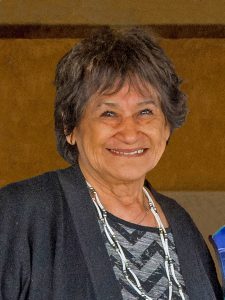by Lorraine Loomis
Already robust levels of hiking, camping, boating and every other kind of outdoor recreation in our region has exploded during the Covid-19 pandemic as many try to cure the effects of cabin fever.
Increased outdoor recreation has led to unprecedented crowds in our parks and forests, and extensive environmental damage accompanied by little enforcement of regulations by short-handed local, state and federal authorities.
This spike in outdoor recreation has drawn attention to the growing impact on tribal treaty rights and resources that is only going to increase as the population of western Washington continues to increase dramatically.
The latest evidence confirms what tribes have been seeing across the landscape for years. Outdoor recreation – whether motorized or not – has significant impacts on the environment.
Even the most remote locations are seeing year-round damage. It includes theft of old-growth cedar and maple, increased litter and human waste left behind by campers, vandalized cultural and spiritual sites that are sacred to our tribes, and human activities that affect the migration and health of fish, wildlife and habitats.
Twenty Indian tribes have treaty-reserved rights to fish, hunt and gather in western Washington. We understand the benefits that outdoor recreation provides to everyone, but our fish, wildlife, plants and their habitats need protection.
We watch with alarm as federal, state and local governments continue to plan, fund and expand recreation without looking at the cumulative impacts, without providing the necessary enforcement, and often without consultation of the treaty tribes.
That’s why it’s critical that treaty tribes, as sovereign governments and natural resources co-managers, be involved early in the planning, funding and development of any new or expanded recreation opportunities, recreational infrastructure and recreation policy.
Through the Northwest Indian Fisheries Commission, we have formed a working group to address these issues. We’ve also made a formal request to Gov. Jay Inslee to designate a task force to work with us to address concerns and develop solutions.
As co-managers of natural resources with the state of Washington, we have the right to a seat at the table when recreation management decisions are made and a voice in how they are implemented. Our cultures and treaty rights depend on the long-term health of these lands and resources.
A new park and parking lot here. Five miles of new trail there and two more somewhere else. It all adds up to death by a thousand cuts to our environment, fish, wildlife, and their habitats.
What we need is comprehensive recreational management. We should approach it as co-managers like we would any issue involving our environment, natural resources and treaty rights: Responsibly, thoughtfully and cooperatively.
____________________
Lorraine Loomis is chair of the Northwest Indian Fisheries Commission, www.nwifc.org. This column represents the natural resources management interests and concerns of the treaty Indian tribes in western Washington.





























